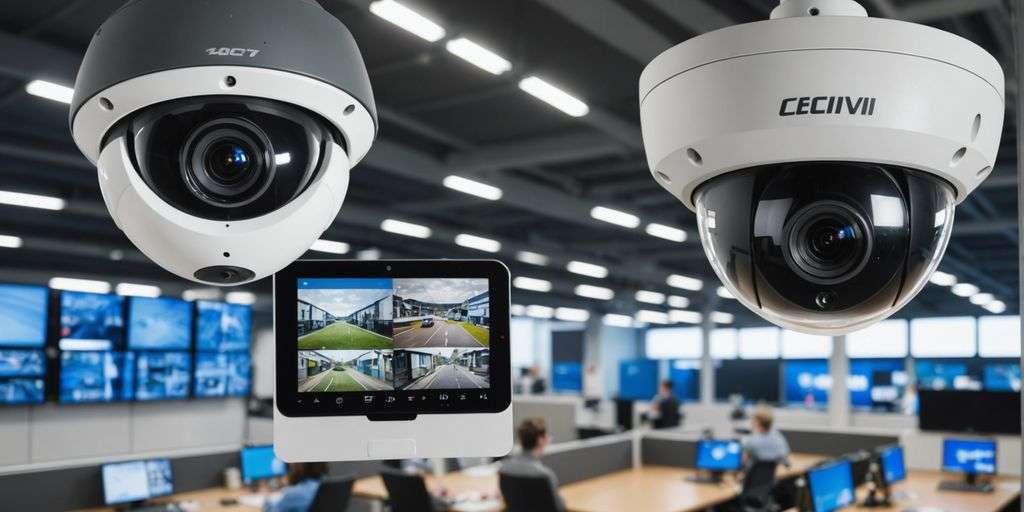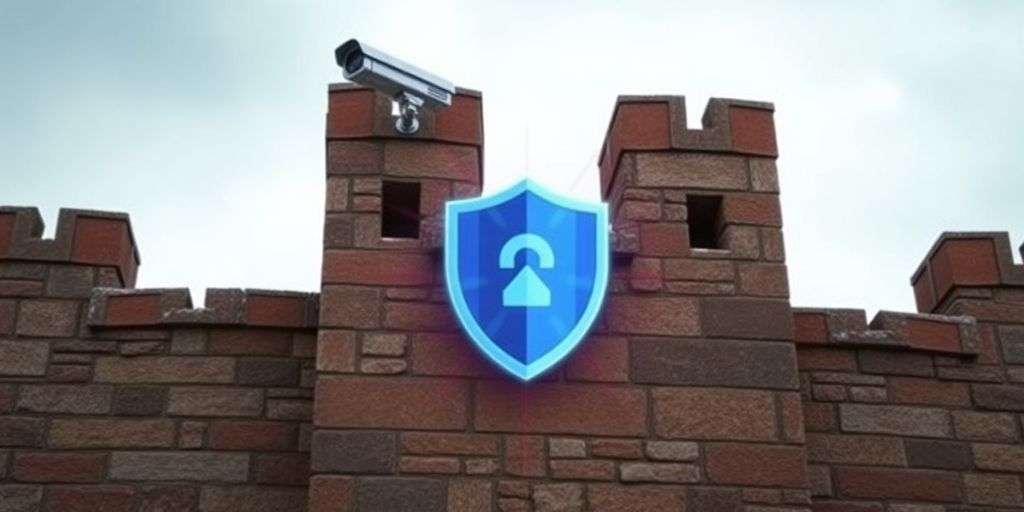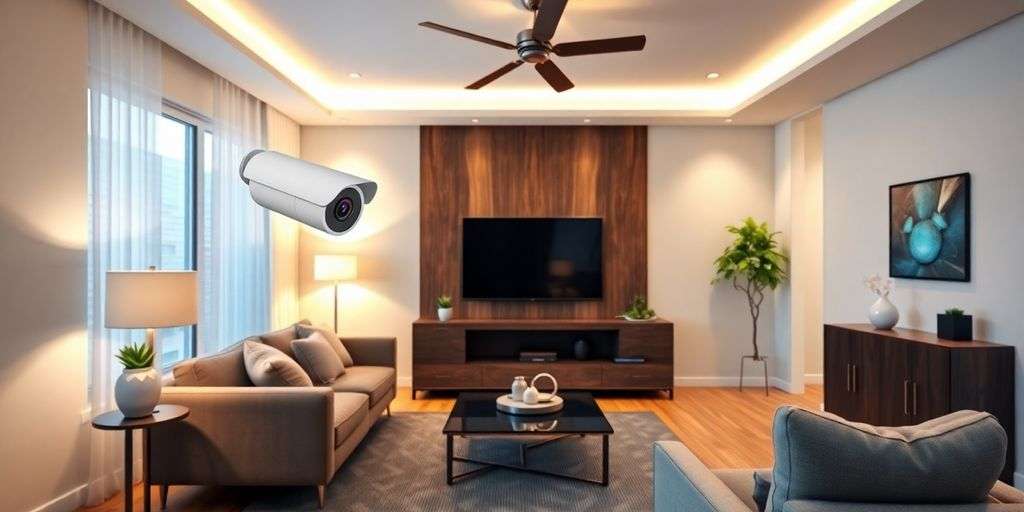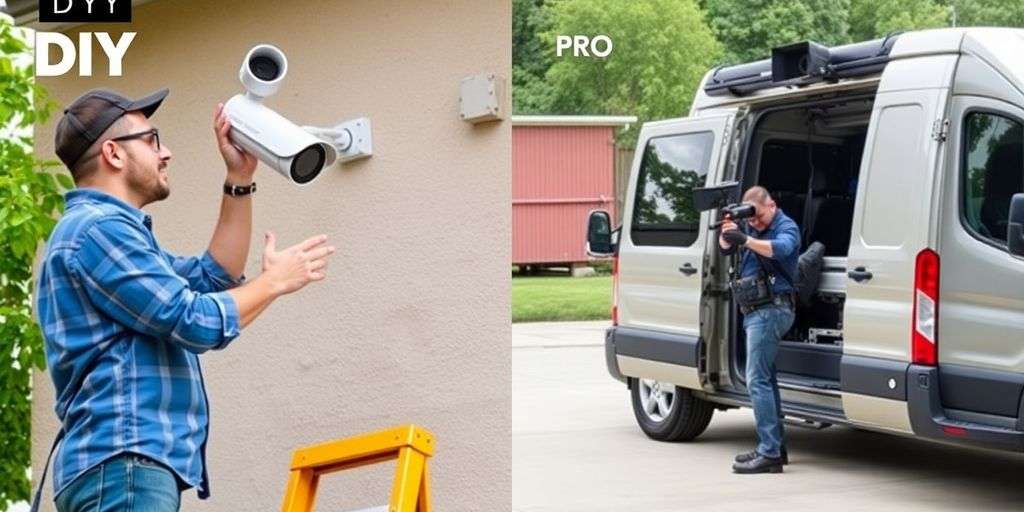Understanding Analogue CCTV Technology
How Analogue Cameras Work
Analogue CCTV cameras capture video images using a sensor. The resolution of this sensor is typically limited to 720×575 pixels. The video is captured in 60 intervals called "fields," and two fields make up a "frame." This method is known as interlaced transmission. The video signal is then transmitted to a recording device via a single coaxial cable, adhering to broadcast television standards like NTSC or PAL.
Common Issues with Analogue Systems
Analogue systems often face issues such as noise interference, which can degrade video quality. Despite being shielded, coaxial cables can still pick up noise, leading to compression artefacts in recordings. Additionally, analogue TV standards have imperfections that introduce decoding errors, resulting in false colours in black-and-white images.
Benefits of Analogue CCTV
Analogue CCTV systems are generally easier to set up and use. They are compatible with many existing television and recording devices, making them a cost-effective option for basic security needs. Their simplicity and reliability make them a popular choice for many users.
When considering security options, it’s crucial to understand the unique needs of your property to make an informed decision.
Exploring IP CCTV Systems

How IP Cameras Operate
IP cameras, also known as network cameras, capture and transmit video data over an IP network. Unlike analogue cameras, which send video signals to a central recording device, IP cameras process video data internally and send it directly to a network video recorder (NVR) or cloud storage. This allows for real-time monitoring and remote access from any location with an internet connection. Additionally, IP cameras can integrate with other security systems, providing a more comprehensive security solution.
Advantages of IP Technology
IP CCTV systems offer several benefits over traditional analogue systems:
- Higher Resolution: IP cameras typically provide higher resolution images, which means better detail and clarity.
- Scalability: Adding more cameras to an IP system is easier and more cost-effective than with analogue systems.
- Remote Access: Users can access live and recorded footage from anywhere, enhancing flexibility and response times.
- Advanced Features: IP cameras often come with built-in features like motion detection, tampering alerts, and video analytics.
Challenges in Implementing IP Systems
Despite their advantages, IP CCTV systems come with their own set of challenges:
- Network Dependency: IP cameras rely on a stable network connection, which can be a point of failure if not properly managed.
- Higher Initial Costs: The upfront cost of IP cameras and related infrastructure can be higher compared to analogue systems.
- Complexity: Setting up and maintaining an IP system requires more technical expertise, which can be a barrier for some users.
When considering an IP CCTV system, it’s crucial to weigh the benefits against the potential challenges to determine if it’s the right fit for your security needs.
Comparing Analogue and IP CCTV
Resolution and Image Quality
When it comes to resolution and image quality, IP cameras generally outperform analogue systems. Analogue cameras are limited by the NTSC and PAL standards, which cap their resolution. In contrast, IP cameras can offer high-definition (HD) and even ultra-high-definition (UHD) resolutions, providing clearer and more detailed images.
Installation and Maintenance
Installing and maintaining these systems also differ significantly. Analogue systems require coaxial cables and are often simpler to set up. However, they can be prone to signal degradation over long distances. IP systems, on the other hand, use network cables and can be more complex to install but offer greater flexibility and scalability. They also support remote diagnostics and updates, making maintenance easier.
Cost Considerations
Cost is another crucial factor. Analogue systems are generally cheaper upfront, making them a popular choice for smaller budgets. However, the long-term costs can add up due to maintenance and potential upgrades. IP systems may have a higher initial cost but can be more cost-effective in the long run due to their advanced features and lower maintenance needs.
Choosing between analogue and IP CCTV systems depends on your specific needs and budget. While analogue systems are simpler and cheaper initially, IP systems offer better image quality and more advanced features.
Making the Right Choice for Your Needs
Assessing Your Security Requirements
When choosing between analogue and IP CCTV systems, it’s crucial to assess your specific security needs. Consider the following:
- Location: Are you monitoring indoor or outdoor areas?
- Coverage: How large is the area you need to cover?
- Detail: Do you need high-resolution images for identification purposes?
- Lighting: Will the cameras need to perform well in low-light conditions?
Future-Proofing Your Investment
Investing in a CCTV system is a long-term commitment. To ensure your system remains relevant, consider the following:
- Scalability: Can the system be easily expanded?
- Compatibility: Will it work with future technologies?
- Upgradability: Are software and firmware updates available?
Expert Recommendations
Consulting with security experts can provide valuable insights. They can help you:
- Evaluate your current security setup.
- Identify potential vulnerabilities.
- Recommend the best system based on your needs and budget.
Pro Tip: Always seek professional advice to ensure you make an informed decision.
By carefully considering your requirements and future needs, you can choose a CCTV system that offers both security and peace of mind.
Conclusion
In the end, choosing between analogue and IP CCTV systems boils down to your specific needs and circumstances. Analogue systems have been around for decades and are known for their reliability and simplicity. However, they come with limitations in terms of image quality and flexibility. On the other hand, IP cameras offer superior image quality, scalability, and advanced features like remote access and intelligent analytics. While they may require a bit more technical know-how to set up, the benefits they bring can be well worth the effort. So, whether you stick with the tried-and-true analogue or embrace the cutting-edge IP technology, the key is to assess what works best for your situation. Happy monitoring!
Frequently Asked Questions
What is the main difference between analogue and IP CCTV systems?
The main difference lies in how they transmit video. Analogue CCTV systems send video over coaxial cables, while IP CCTV systems use network cables to send digital video data.
Are IP cameras better than analogue cameras?
IP cameras generally offer better image quality and more features compared to analogue cameras. However, they can be more expensive and complex to install.
Can I use both analogue and IP cameras in the same system?
Yes, you can use both types of cameras in a hybrid system. This allows you to upgrade gradually without replacing all your existing equipment.





